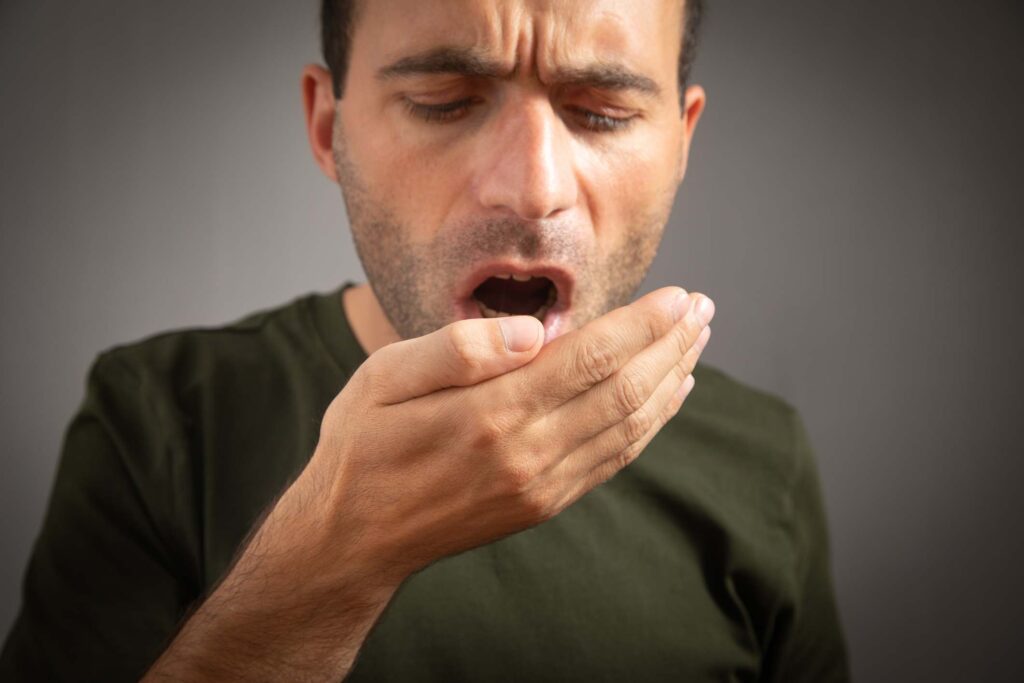How Bad Breath Develops and How to Minimize It
How to Prevent Bad Breath and Keep Your Mouth Fresh
Bad breath is a common oral health concern that affects millions of adults every year. It can impact self-confidence, relationships, and even professional interactions. Many people in the Creve Coeur, MO, area search for answers to questions like “why does my breath smell so bad?” or “how to fix bad breath.” Understanding the root causes of this issue is the first step toward finding a solution. With the right approach, fresher breath is not only possible but also maintainable through consistent routine dental care.
Why Regular Dental Checkups Matter
Routine dental visits allow your dentist to detect the causes of halitosis early and recommend preventive dentistry solutions before the condition worsens. The importance of dental checkups goes beyond just cleaning teeth—they create opportunities for professional evaluation of the entire oral environment. During a checkup, your dentist can identify gum disease, cavities, or dry mouth symptoms that contribute to bad breath. Consistent care helps address problems at their source instead of relying only on temporary fixes like gum or mints.

What Causes Bad Breath?
Bad breath, or halitosis, can develop for a variety of reasons. Identifying the exact cause is key to effective treatment:
- Oral Bacteria: Food particles left behind become fuel for bacteria that release volatile sulfur compounds, creating unpleasant odors. We can help you learn how to kill bacteria in the mouth.
- Dry Mouth: Saliva helps wash away debris and neutralize acids. Without enough saliva, bacteria thrive.
- Diet Choices: Foods like onions, garlic, and coffee are common culprits behind short-term odor.
- Tobacco Use: Smoking and chewing tobacco dry out the mouth, increase plaque buildup, and leave lingering smells.
- Underlying Health Conditions: Sinus infections, diabetes, and digestive issues can also contribute to persistent bad breath.
How Bad Breath Develops
Halitosis typically builds gradually. When oral hygiene routines are inconsistent, food debris and plaque accumulate in areas that are difficult to clean. Bacteria feed on these particles, releasing sulfur-based compounds that cause strong odors. Over time, gum disease or untreated cavities may worsen the smell, making it harder to control.
Another factor is tongue coating. The rough surface of the tongue provides an ideal environment for bacterial growth. Without tongue cleaning, layers of bacteria, food, and mucus can form, leading to chronic odor. Dry mouth intensifies this cycle because there is less saliva available to naturally rinse away odor-causing substances.
Patients often ask how to kill bacteria in the mouth effectively. While antibacterial rinses may help, long-term improvement usually requires a combination of daily hygiene habits and professional care to address the underlying issues.
Best Practices to Minimize Bad Breath
Good habits are the foundation of fresh breath. Each of these steps plays a role in creating a healthier environment in the mouth. Over time, combining these habits with professional support can significantly reduce the likelihood of chronic bad breath. For those wondering how to get rid of bad breath, these practices are often recommended by dental professionals:
- Daily Brushing & Flossing: Thorough cleaning removes plaque and leftover food particles.
- Tongue Cleaning: A scraper or toothbrush can remove bacteria coating the tongue.
- Stay Hydrated: Drinking plenty of water supports saliva flow, helping rinse away odor.
- Balanced Nutrition: Reducing sugary snacks and limiting pungent foods lowers bacterial growth.
- Avoid Tobacco: Eliminating smoking and chewing tobacco reduces both odors and oral health risks.
- Schedule Dental Visits: Routine dental care ensures plaque and tartar buildup are controlled.
Personalized Treatment Options
For patients who continue to struggle with halitosis despite good home care, personalized treatment may be necessary. These options are tailored to the individual, making it possible to address not only symptoms but also the cause of the problem. Dentists evaluate each case to determine the most effective plan, which may include:
- Professional Cleanings: Removing hardened tartar that cannot be reached with at-home tools.
- Gum Disease Therapy: Treating gingivitis or periodontitis that fuels odor-causing bacteria.
- Restorative Dental Work: Repairing cavities or adjusting dental restorations that trap debris.
- Dry Mouth Solutions: Offering saliva substitutes, sugar-free lozenges, or hydration strategies.
- Targeted Mouthrinses: Antimicrobial rinses designed to reduce odor-causing bacteria.
When to Seek Professional Dental Help
Occasional bad breath after a meal is common, but chronic halitosis should not be ignored. These signs suggest that an oral health checkup could uncover conditions requiring treatment. Early detection allows for timely care that helps protect both oral health and overall well-being. You may benefit from professional evaluation if you experience:
- Persistent bad breath despite good hygiene habits
- A consistent bad taste in the mouth
- Signs of gum disease, such as bleeding or swelling
- Sensitivity or visible cavities
- Ongoing issues with dry mouth
The Mouth-Body Connection
Bad breath may sometimes signal more than an oral issue. Systemic conditions such as diabetes, liver disease, or gastrointestinal disorders can produce odors that originate beyond the mouth. Understanding this mouth-body connection is an important part of evaluating halitosis. Dentists often work in collaboration with physicians when necessary to ensure patients receive comprehensive care.
Restoring Confidence Through Preventive Dentistry
One of the main benefits of regular dental visits is the reassurance they provide. Preventive dentistry not only protects against cavities and gum disease but also helps minimize halitosis. Patients often feel more confident in daily interactions when they know they are taking proactive steps toward fresher breath.
Schedule Your Oral Health Checkup
If you have been asking how to fix bad breath or how to get rid of bad breath long-term, a professional evaluation is an important next step. At Creve Coeur Dental, we provide comprehensive care for patients throughout Creve Coeur, MO, focusing on both prevention and treatment of common oral health issues. By addressing the underlying causes of halitosis, we help patients achieve healthier smiles and fresher breath. Reach out today to schedule your oral health checkup.
